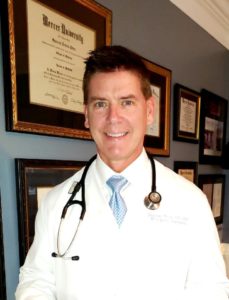Dr. Spencer T. Price, MD, MPH, MBA, Gives us a Closer Look at ABPS’s Clinically Based Examinations
 Certification exams offered by the American Board of Physician Specialties® (ABPS) focus on the knowledge and skills necessary to provide safe, effective, evidence-based medicine. ABPS exams are prepared not by academics, but by physicians who practice their medical specialty daily. ABPS exams avoid controversial, unsettled areas of medical practice, and exam questions are not designed to trick or confuse candidates but, rather, to measure a physician’s ability to solve medical problems. ABPS exams focus less on the candidate’s ability to learn facts and more on the ability to care for patients.
Certification exams offered by the American Board of Physician Specialties® (ABPS) focus on the knowledge and skills necessary to provide safe, effective, evidence-based medicine. ABPS exams are prepared not by academics, but by physicians who practice their medical specialty daily. ABPS exams avoid controversial, unsettled areas of medical practice, and exam questions are not designed to trick or confuse candidates but, rather, to measure a physician’s ability to solve medical problems. ABPS exams focus less on the candidate’s ability to learn facts and more on the ability to care for patients.
Because these exams are clinically-based, they pose questions with direct clinical bearing. So, scenarios are based on common clinical encounters and measure clinical acumen and problem-solving skills. Each question is evidence-based. Subjectivity and esoterica are avoided. Exam questions are selected based on practical experience gained from years of direct patient care.
To prepare for ABPS exams, physicians should rely on practical, hands-on experience as well as foundational texts in their fields. In an effort toward transparency, the ABPS publishes a list of these texts.
Successful completion of a clinically-based exam demonstrates that a physician possesses the requisite knowledge and skills to provide safe and effective health care. After passing my ABPS certification exams, I was confident that I had what it takes to improve my patients’ health and quality of life. I knew that I had mastered a body of knowledge derived from the study and practice of thousands of physicians before me and that I would be making decisions based on the expertise and success of those medical professionals.
Dr. Spencer T. Price, MD, is a Diplomate of the ABPS Member Boards, the Board of Certification in Internal Medicine (BCIM), the American Board of Disaster Medicine (ABODM), and the American Board of Administrative Medicine (ABAM).






